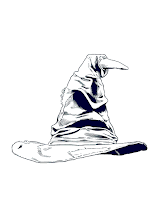 |
To request this book, click on the title,
above right. |
At the age of 38, Jennifer Teege discovered that her grandfather was the commandant of the Polish concentration camp depicted in the movie, Schindler's List. She struggles to deal with the knowledge that her grandfather perpetrated genocide and that her loving grandmother was a complicit witness to the horrors of the Holocaust.
Adopted at a young age, Jennifer was ignorant of her German family's role in World War II. After her discovery, she tracks down her birth mother to discuss the past. After her discussion with her mother and after much research, she realizes that all the children of the Nazis are stuck in the past, either trying to glorify, exonerate, or vilify their fathers' roles in the atrocities. Some go so far as to choose sterilization so that they won't pass on the "monster"gene. Jennifer feels this is wrong. This faulty thinking perpetuates the Nazi tenant that our genes determine our lives.

This dichotomy is something that all genealogists struggle with on a much smaller scale. We love researching our ancestors; uncovering, and sometimes, glorifying their lives. But how much does our genetic heritage effect our daily lives?
Do the achievements, failures or horrors that our ancestors accomplished confer any special glow or tarnish to us, their descendants?
One of my ancestors, Samuel Tanner, was a West Virginia pioneer, pushing into uninhabited (by Europeans) territory, living in a cave with his family and earning his living by scouting for the government and hunting. His grandson, James Tanner, worked for the railroad and moved every two years. His grandson, my grandfather, John Mason was a long-distance trucker, crisscrossing the country with his loads. He also moved frequently. My sister is also a wanderer, preferring to move and change jobs frequently. Through genealogical research we have discovered a fifth cousin once removed who also exhibits this restless tendency.
Is this a gene at work? Or is it merely an inclination that any individual might succumb to? Is it only seen as a family trait because of knowledge of the family history?
Personally, I have decided that there are family inclinations that are passed down from generation to generation, just as a recipe is passed down. But it is not predetermined by our genes.
After all, as Dumbledore tells Harry Potter...
"It is the choices we make, Harry, that show who we truly are, far more than our abilities."
As for Jennifer Teege, what does she decide? You'll have to read the book to find out!








